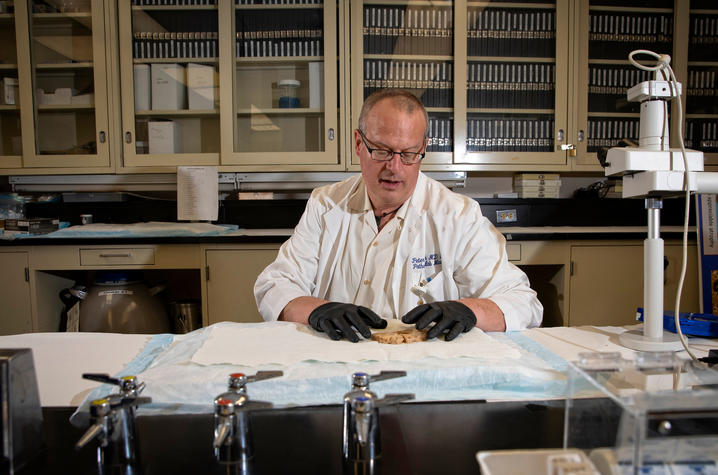LEXINGTON, Ky. (Jan. 16, 2020) — An international group of experts led by Dr. Peter Nelson, a neuropathologist at the University of Kentucky Sanders-Brown Center on Aging, is being recognized as one of the top science stories of 2019 by Discover magazine. Back in the Spring of 2019, Nelson and the group characterized a different form of dementia that is now called LATE.
“Our ongoing work is aimed at stopping or reversing problems in thinking and memory in the elderly. It turns out that the diseases that cause these symptoms are fairly complex. Workers at Sanders-Brown have worked for decades to tease out what causes those diseases, and possible therapeutic strategies,” said Nelson, who notes that this work has always been important but more so now than ever as the population is aging. “Now that we recognize LATE, we can not only generate therapies for this disease, but we can now better perform clinical trials for Alzheimer’s disease as well. Since the University of Kentucky has an extraordinary group of research volunteers and great researchers, we are uniquely situated to perform these studies.”
UK initiated its aging program in 1963. With a grant from the Eleanor and John Y. Brown Jr. Foundation in 1972, the construction of the current Sanders-Brown Research Building was begun and, with additional funding from the state, a program in biomedical research was implemented. In 1979, under the direction of the late Dr. William Markesbery, Sanders-Brown emerged as a national leader in efforts to improve the quality of life for the elderly through research and education. Most recently, in 2016, the UK Sanders-Brown Center on Aging Alzheimer's Disease Center was funded through 2021 by an $8.25 million, five-year grant from the National Institute on Aging, to continue and further research and clinical initiatives geared toward treating Alzheimer's disease.
